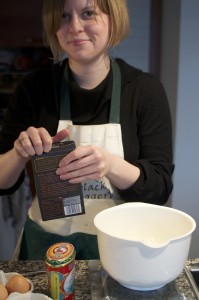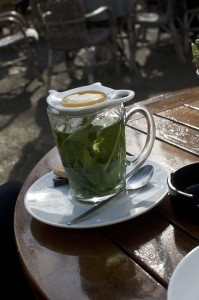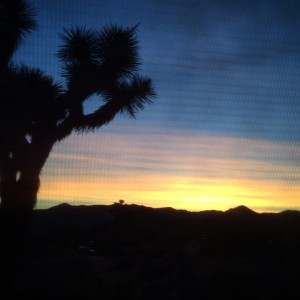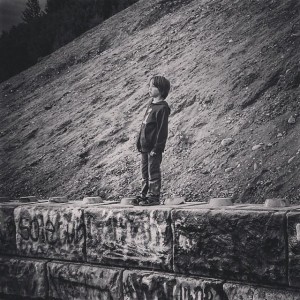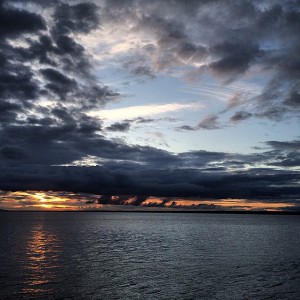The black suede coat my sister passed down didn’t fit me quite right, but it let me play the part of the cosmopolitan European with a little more believability, so I cherished it. I loved wearing it with my knit burgundy scarf tucked in at the collar. I loved how it trailed around my shins as I clip-clopped through airports with bags of gifts and luggage I bought to blend in.
I was flying home for Christmas. I remember changing planes in London, walking down the dismal beige corridor from whatever low-budget airline I’d just taken to the bright spacious British Airways international terminal where I would board my usual flight to Denver. I had been living abroad for a couple years and flying often enough to want to appear confident, worldly, and self-possessed as I navigated the airports of the world.
On this particular day, I got into the line at the gate and stepped up close — very close — to the person ahead of me, just as I was used to doing in post offices and grocery stores in eastern Europe. But I only stood there a moment or two before I started getting strange stares from my fellow passengers.
I was standing less than a foot behind the person in front of me, near enough for my long, ill-fitting coat to graze the back of their boots. All of a sudden I was painfully aware that I was applying my new-found eastern European personal space rules to a bunch of Americans.
Embarrassed, I stepped back a few feet and sheepishly looked around. Surveying the line, I realized I was surrounded by a field of North Face parkas, Denver Bronco hats and Colorado college team t-shirts. These were my people. We might have been in a boarding line in London, but these were westerners, used to wide open spaces and neighborly elbow room that spans miles.
Personal space is one of those secrets you learn only by trial and observation —by finding yourself on the receiving end of strange stares, or by being cut in front of when you habitually leave too much space between you and the postal clerk. My moment of embarrassment in applying the wrong personal space rules to the wrong context was a moment when I became aware I had left one place and arrived in another without realizing it.
Sometimes it takes awhile to figure out where you are.
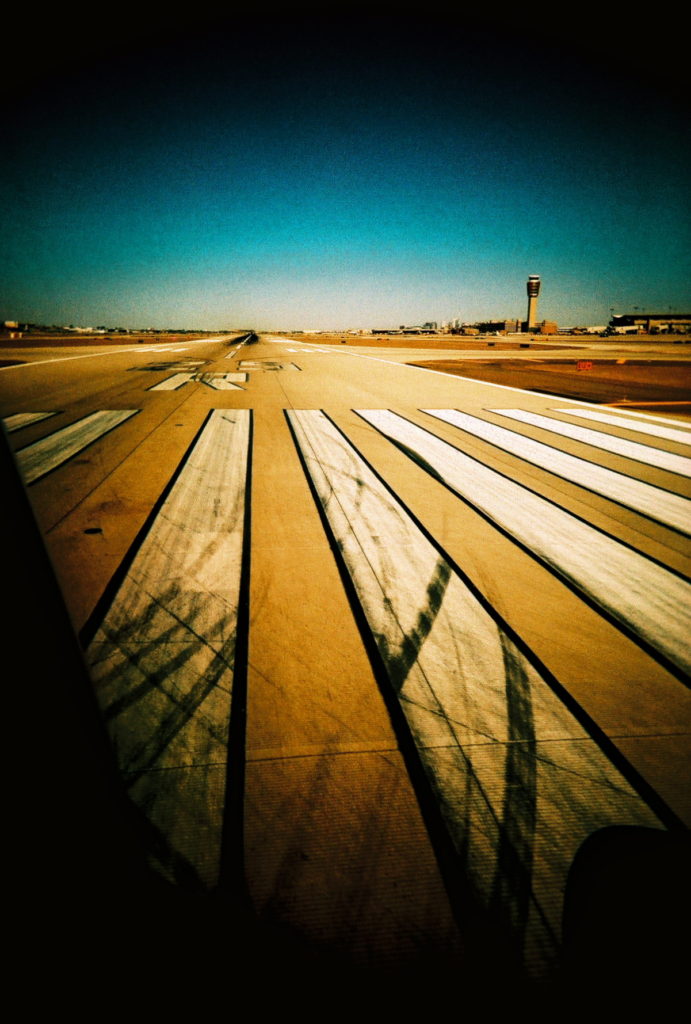 Furthermore, airports are full of another type of ambiguous space, places of boundaries and thresholds. Doorways or hallways, corridors, waiting rooms, boarding lines — these are not destinations in and of themselves. They are liminal, or in-between, places; places where we make transitions or where changes happen.
Furthermore, airports are full of another type of ambiguous space, places of boundaries and thresholds. Doorways or hallways, corridors, waiting rooms, boarding lines — these are not destinations in and of themselves. They are liminal, or in-between, places; places where we make transitions or where changes happen.
Liminal spaces can be places of discomfort, anxiety, and self-consciousness, but also of freedom. What I experienced during my years of frequent travel was both the anxieties of transition, and, more significantly, the presence of God in those spaces. Liminal spaces were where God met me more intimately because I was in motion, open to surprises.
There was the Christmas morning flight when I spent an hour in on a layover, reading from Isaiah in the Bible laid open on the airport chapel table; or the times when the music in my earbuds would transform an ordinary security checkpoint into a holy sea of pilgrims. One flight, two missionary women were seated in my row and we spent nearly the whole flight sharing struggles and praying together.
And once, a German woman in a train station who saw me crying in a moment of frustration promised, “Morgen Besser,” which I understood as, “it’ll be better in the morning.” In the enchanted terrain of liminal space, I felt carried and carried along.
Morgen Besser. God has always spoken the most clearly and dearly in these secret spaces of travel, holding me as closely as baggage that might be lost along the way.
When I think now about how vividly God met me in those turbulent times, I am tempted to think that I no longer have access to knowing Him with that particular intimacy. Then I remember, life itself is a liminal space. I don’t have to be on an actual journey; there enough metaphorical ones to keep me alert. We’re all moving between birth and death, between one identity and another almost constantly, and God is still waiting to meet me in these in-between, unsettled places.
* * * * *
 Jennifer Stewart Fueston writes in Longmont, Colorado where she lives with her husband and two young sons. She has taught writing at the University of Colorado, Boulder, as well as internationally in Hungary, Turkey, and Lithuania. This year, her poems have appeared in Windhover, The Other Journal and The Cresset. Her chapbook of poetry entitled, Visitations, was published in 2015. She blogs very sporadically at jenniferstewartfueston.com and uses Twitter (@jenniferfueston) primarily during playoff football and for ranting during election season.
Jennifer Stewart Fueston writes in Longmont, Colorado where she lives with her husband and two young sons. She has taught writing at the University of Colorado, Boulder, as well as internationally in Hungary, Turkey, and Lithuania. This year, her poems have appeared in Windhover, The Other Journal and The Cresset. Her chapbook of poetry entitled, Visitations, was published in 2015. She blogs very sporadically at jenniferstewartfueston.com and uses Twitter (@jenniferfueston) primarily during playoff football and for ranting during election season.
Photograph by Kevin Dooley
